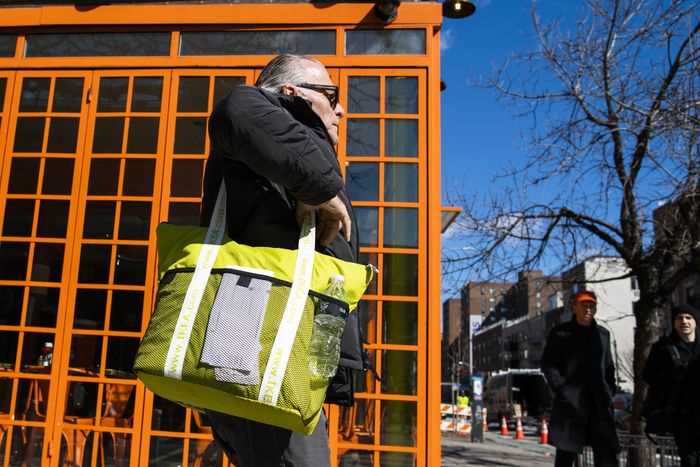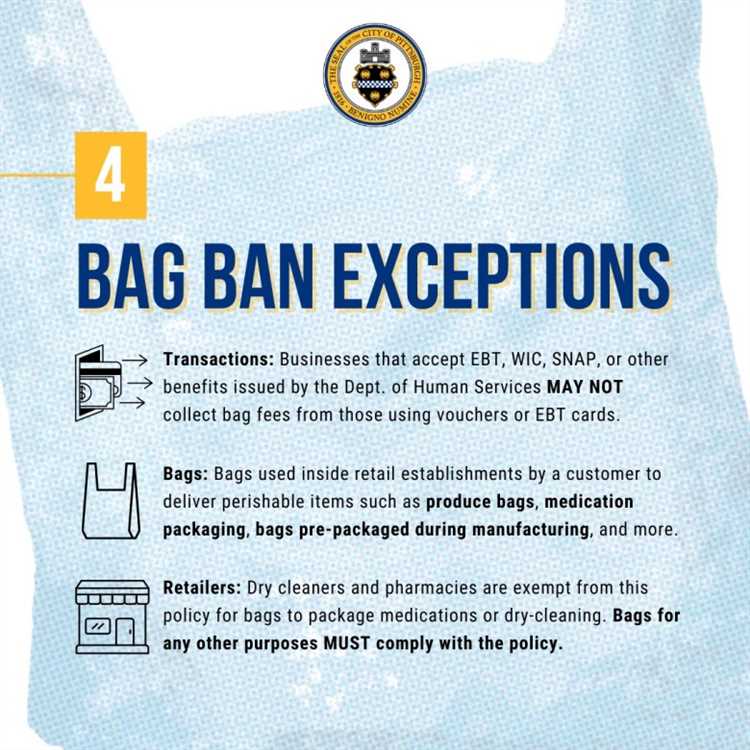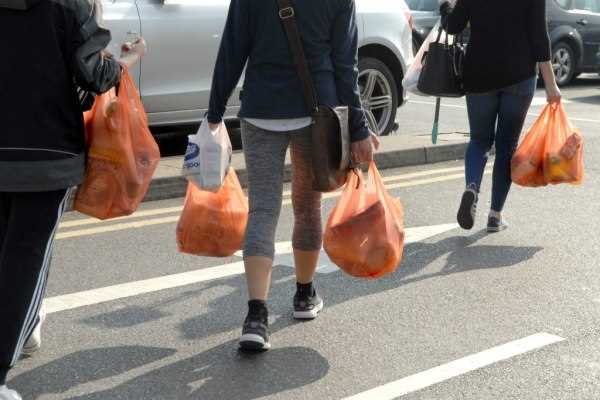
In an effort to reduce plastic waste and promote environmental sustainability, the state of Oregon has implemented a comprehensive bag ban that will come into effect in 2024. This progressive legislation aims to address the detrimental impact of single-use plastic bags on our planet and encourage consumers to embrace more eco-friendly alternatives.
The bag ban prohibits retailers from providing customers with single-use plastic bags at the point of sale. This means that shoppers will need to bring their own reusable bags or opt for alternative options such as paper bags or durable cloth bags. The ban applies to grocery stores, convenience stores, and other retail establishments, with a few exceptions for certain items like bulk produce and prescription medications.
By implementing this bag ban, Oregon joins a growing number of states and cities around the world that are taking proactive steps to combat plastic pollution. Single-use plastic bags are known to contribute significantly to marine litter, harming wildlife and ecosystems. The ban aims to mitigate these negative impacts by reducing the consumption of plastic bags and encouraging sustainable consumer behavior.
As the 2024 deadline approaches, it is important for Oregon residents and visitors to familiarize themselves with the upcoming changes. By remembering to bring reusable bags when shopping, we can all play a part in protecting our environment and creating a more sustainable future for future generations.
- Oregon Bag Ban 2024
- Overview of the new legislation
- Impact on consumers and businesses
- Impact on Consumers
- Impact on Businesses
- Alternative options for carrying groceries
- Benefits for the environment
- 1. Reduction of plastic pollution
- 2. Conservation of natural resources
- 3. Promotion of sustainable alternatives
- Enforcement and penalties
- Conclusion
- Preparation and timeline for implementation
- Q&A:
- When will the Oregon bag ban take effect?
- What types of bags will be banned in Oregon?
- Will any bags still be allowed in Oregon after the ban?
- Why is Oregon implementing a bag ban?
- Will there be any penalties for violating the bag ban in Oregon?
- What is the Oregon bag ban and when does it go into effect?
Oregon Bag Ban 2024
The state of Oregon will be implementing a bag ban in 2024, which will prohibit certain types of single-use bags from being distributed by retailers. This move is aimed at reducing plastic waste and promoting the use of reusable bags.
Starting from January 1, 2024, retailers in Oregon will no longer be allowed to provide customers with single-use plastic bags. This includes bags made from traditional plastics, as well as biodegradable and compostable bags. Instead, consumers will need to bring their own reusable bags or purchase them from the retailer.
The ban applies to all types of businesses, including grocery stores, convenience stores, pharmacies, and restaurants. It is estimated that the ban will eliminate millions of plastic bags from circulation in the state each year.
While this ban may require some adjustment for consumers and businesses alike, it is an important step towards reducing plastic pollution and promoting sustainable practices. Oregon joins a growing number of states and countries that have implemented similar bag bans in recent years.
By encouraging the use of reusable bags, the state aims to reduce the amount of plastic waste that ends up in landfills, rivers, and oceans. Plastic bags are not biodegradable and can take hundreds of years to break down. They also pose a threat to wildlife, who may mistake them for food or become entangled in them.
During the transition period leading up to the ban, it is important for consumers to start incorporating reusable bags into their shopping routine. This can be as simple as keeping a few bags in the trunk of your car or carrying a foldable bag in your purse or backpack.
While the bag ban may present some challenges, it also presents an opportunity for innovation and the development of alternative packaging solutions. Many businesses are already exploring more sustainable options, such as paper bags, fabric bags, or even packaging-free alternatives.
Overall, the Oregon Bag Ban 2024 is a positive step towards reducing plastic waste and protecting our environment. With the support and cooperation of consumers and businesses, we can make a significant impact and create a cleaner, greener future for Oregon.
Overview of the new legislation
The new legislation, known as the Oregon Bag Ban 2024, aims to reduce the use of single-use plastic bags in the state. Starting from January 1, 2024, the ban will prohibit the distribution of plastic bags at grocery stores, convenience stores, and retail outlets across Oregon.
Under this legislation, consumers will be encouraged to bring their own reusable bags when shopping. However, paper bags will still be available for purchase at a minimum cost of $0.05 per bag. Retailers will be required to provide customers with reusable bags made from recycled materials as an alternative to plastic bags.
This bag ban is part of Oregon’s effort to reduce plastic waste and protect the environment. Plastic bags have been a major contributor to pollution and harm to wildlife, as they often end up in waterways and landfills. By eliminating single-use plastic bags, Oregon aims to promote sustainable practices and encourage responsible consumer behavior.
The legislation also includes provisions to support businesses during the transition. Retailers will have a grace period until July 1, 2024, to comply with the ban without penalty. The government will also provide resources and guidance to retailers to help them adjust to the new regulations.
Overall, the Oregon Bag Ban 2024 represents a significant step towards reducing plastic pollution and promoting a more sustainable future. By encouraging the use of reusable bags and limiting the distribution of plastic bags, Oregon is leading the way in environmental conservation and setting an example for other states to follow.
Impact on consumers and businesses
The implementation of the Oregon Bag Ban in 2024 will have significant implications for both consumers and businesses in the state. This legislation is aimed at reducing the use of single-use plastic bags and promoting sustainable alternatives.
Impact on Consumers
For consumers, the bag ban means that single-use plastic bags will no longer be available at most retail establishments across Oregon. Instead, customers will be encouraged to bring their own reusable bags or purchase durable, reusable bags from retailers. While there may be an initial adjustment period for consumers, this change will ultimately promote environmentally friendly behavior and reduce plastic waste.
Consumers may also need to adjust their shopping habits to accommodate the ban. This means being more mindful of bringing their own bags to the store and planning their shopping trips accordingly. However, the ban presents an opportunity for consumers to adopt more sustainable practices and make a positive impact on the environment.
Impact on Businesses
Businesses will also experience significant changes as a result of the bag ban. Most notably, retailers will need to find alternative packaging options and transition away from using single-use plastic bags. This transition may require an initial investment in reusable bags or other sustainable packaging materials.
Moreover, businesses will need to rethink their customer service strategies and educate their customers about the bag ban. This could include providing information on the benefits of reusable bags, offering incentives for customers who bring their own bags, and ensuring that employees are knowledgeable about the legislation and its implications. By adapting to the bag ban, businesses can demonstrate their commitment to sustainability and appeal to environmentally conscious consumers.
Overall, while the bag ban presents some initial challenges for both consumers and businesses, its long-term impact is expected to be positive. By reducing the use of single-use plastic bags, Oregon can take a significant step towards a more sustainable future, with benefits for both the environment and future generations.
Alternative options for carrying groceries
With the upcoming bag ban in Oregon, it’s important to explore alternative options for carrying your groceries. Here are a few options to consider:
Reusable shopping bags: Investing in a set of reusable shopping bags is a great way to carry your groceries without contributing to waste. These bags are typically made of durable materials like canvas or recycled materials and can be used multiple times. Keep a set of these bags in your car or by your front door so they’re always ready to go when you head to the store.
Backpacks: If you prefer a hands-free option, using a backpack to carry your groceries can be a convenient and eco-friendly choice. Look for backpacks with sturdy straps and multiple compartments to keep your groceries organized and secure.
Wheeled carts: For those with larger grocery hauls, investing in a wheeled cart can provide added convenience. These carts typically have wheels and a handle, making it easy to transport your groceries from the store to your car or home. Look for carts that are foldable for easy storage when not in use.
Paper bags: While plastic bags will no longer be an option, many stores still offer paper bags as an alternative. Although paper bags are not as reusable as other options, they can still be a good choice if you forget your reusable bags or need to carry a large number of items. Just remember to recycle them afterwards.
DIY alternatives: If you’re feeling crafty, there are plenty of DIY alternatives for carrying groceries. You can repurpose old t-shirts or fabric into makeshift bags, or even crochet your own reusable bag. These homemade options can be unique and personalized to your style.
Remember, the bag ban is an opportunity to reduce waste and make more sustainable choices. By exploring alternative options for carrying your groceries, you can play a part in creating a greener future for Oregon.
Benefits for the environment

The Oregon bag ban implemented in 2024 has numerous benefits for the environment. By reducing the usage of single-use plastic bags, this ban helps to decrease the amount of plastic waste that ends up in landfills and natural habitats such as rivers, lakes, and oceans.
1. Reduction of plastic pollution

Plastic pollution is a significant global issue that harms wildlife, ecosystems, and human health. The bag ban in Oregon contributes to minimizing plastic pollution by encouraging people to use reusable bags instead of plastic ones. This reduction in single-use plastic bags can ultimately lead to a cleaner environment and healthier ecosystems.
2. Conservation of natural resources

The production of plastic bags requires the extraction of natural resources such as oil and gas. By reducing the demand for single-use plastic bags, the bag ban helps conserve these resources. This conservation effort contributes to the preservation of natural habitats and reduces the need for environmentally damaging extraction processes.
Moreover, the bag ban also helps conserve water resources. The production of plastic bags requires significant amounts of water, and by reducing their usage, the ban indirectly helps save water and supports sustainable water management.
3. Promotion of sustainable alternatives
The bag ban encourages the use of sustainable alternatives such as reusable bags made from natural materials like cotton or jute. By promoting these alternatives, the ban helps foster the development of eco-friendly industries and supports the shift towards a more sustainable economy.
Additionally, the ban provides an opportunity for businesses to showcase their commitment to environmental sustainability by offering reusable bags and promoting responsible consumer behavior. This promotion of sustainable alternatives creates a positive cycle where consumers are more likely to adopt eco-friendly practices, further reducing their ecological footprint.
In conclusion, the Oregon bag ban implemented in 2024 brings numerous benefits for the environment. It helps reduce plastic pollution, conserve natural resources, and promotes sustainable alternatives. By embracing this ban, individuals and businesses can contribute to a healthier and more sustainable future.
Enforcement and penalties
To ensure compliance with the Oregon Bag Ban, the state will implement a comprehensive enforcement strategy. Retailers will be responsible for adhering to the ban and ensuring their customers are aware of the new regulations. Failure to comply with the ban may result in penalties for both retailers and customers.
Retailers who continue to distribute single-use plastic bags after the ban goes into effect may face fines and other penalties. The exact penalties will depend on the number of violations and the severity of the non-compliance. Retailers found to be in violation may be subject to warnings, fines, and even temporary closure of their businesses.
Customers who disregard the ban and attempt to use single-use plastic bags at the point of sale may also face penalties. These penalties may include a warning, refusal of service, or even fines. It is important for consumers to be aware of the ban and to make a conscious effort to bring their own reusable bags when shopping.
Education and outreach
The state of Oregon recognizes that education and outreach are crucial in facilitating a smooth transition to the bag ban. Efforts will be made to inform retailers and consumers about the new regulations and the reasons behind the ban. This will include extensive public awareness campaigns, informational materials, and training sessions for retailers.
Furthermore, the state will work closely with retailers to ensure they have access to affordable and sustainable alternatives to single-use plastic bags. This will help ease the transition and encourage retailers to embrace environmentally friendly practices.
Conclusion
The enforcement of the Oregon Bag Ban is essential in reducing waste and protecting the environment. By implementing penalties for non-compliance and prioritizing education and outreach, the state aims to create a sustainable future where single-use plastic bags are no longer a pervasive problem.
Preparation and timeline for implementation
As the Oregon Bag Ban 2024 comes into effect, it’s important for both consumers and businesses to be prepared for the changes ahead.
For consumers, it’s a good idea to start transitioning away from single-use plastic bags as soon as possible. Reusable bags are a great alternative and can be found in various sizes and designs. They are not only eco-friendly but also sturdier, making them more convenient for carrying groceries and other items.
Businesses, on the other hand, should start phasing out single-use plastic bags from their stock and replacing them with reusable options. This transition will require some planning and investment in purchasing reusable bags, but it will ultimately contribute to a greener environment and reduce waste.
The timeline for implementation is as follows:
– January 1, 2024: The Oregon Bag Ban officially goes into effect. From this date, single-use plastic bags will no longer be allowed to be distributed by retail establishments.
– July 1, 2023 to December 31, 2023: During this period, retail establishments should begin reducing their inventory of single-use plastic bags and informing their customers about the upcoming ban.
– January 1, 2023 to June 30, 2023: Retail establishments can choose to provide reusable bags at a cost or offer alternative options to single-use plastic bags. This will provide customers with time to adjust to the upcoming changes.
By adhering to this timeline and taking the necessary steps, both consumers and businesses can ensure a smooth transition to the Oregon Bag Ban 2024. Together, we can make a positive impact on the environment and reduce the harmful effects of plastic waste.
Q&A:
When will the Oregon bag ban take effect?
The Oregon bag ban will take effect on January 1, 2024.
What types of bags will be banned in Oregon?
In Oregon, all single-use plastic checkout bags will be banned. This includes both plastic bags with handles and without handles.
Will any bags still be allowed in Oregon after the ban?
Yes, certain bags will still be allowed in Oregon after the ban. These include reusable bags made of cloth or other durable materials, as well as paper bags made of at least 40% recycled content.
Why is Oregon implementing a bag ban?
Oregon is implementing a bag ban to reduce plastic waste and protect the environment. Single-use plastic bags are often not recycled and can end up in landfills, waterways, and oceans, where they can harm wildlife and contribute to pollution.
Will there be any penalties for violating the bag ban in Oregon?
Yes, there may be penalties for violating the bag ban in Oregon. The specific penalties will be determined by local jurisdictions and could include fines or other enforcement actions.
What is the Oregon bag ban and when does it go into effect?
The Oregon bag ban is a law that will prohibit the use of single-use plastic bags at retail stores and restaurants. It will go into effect on January 1, 2024.